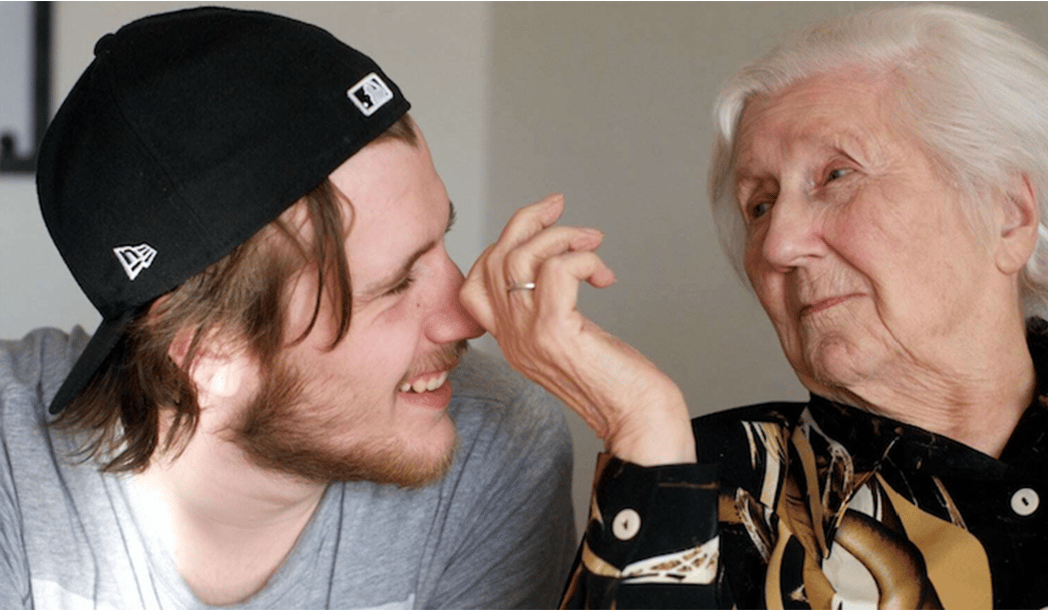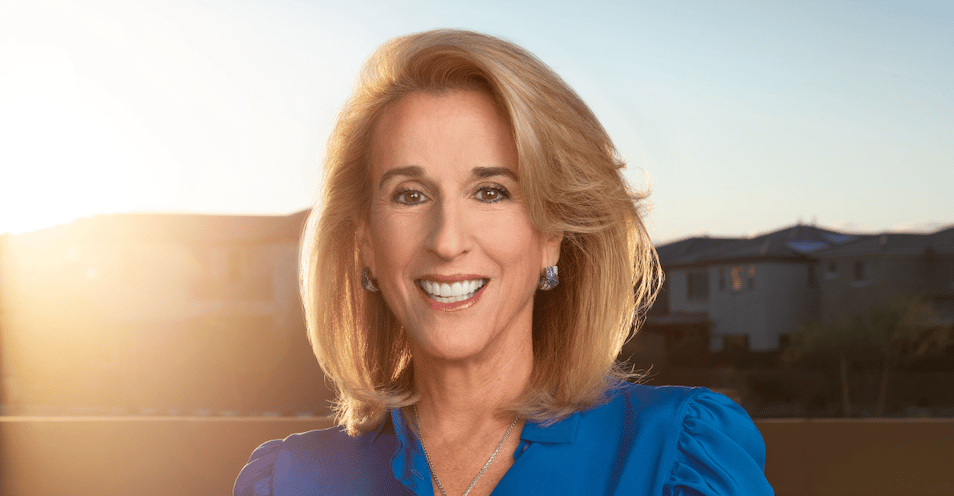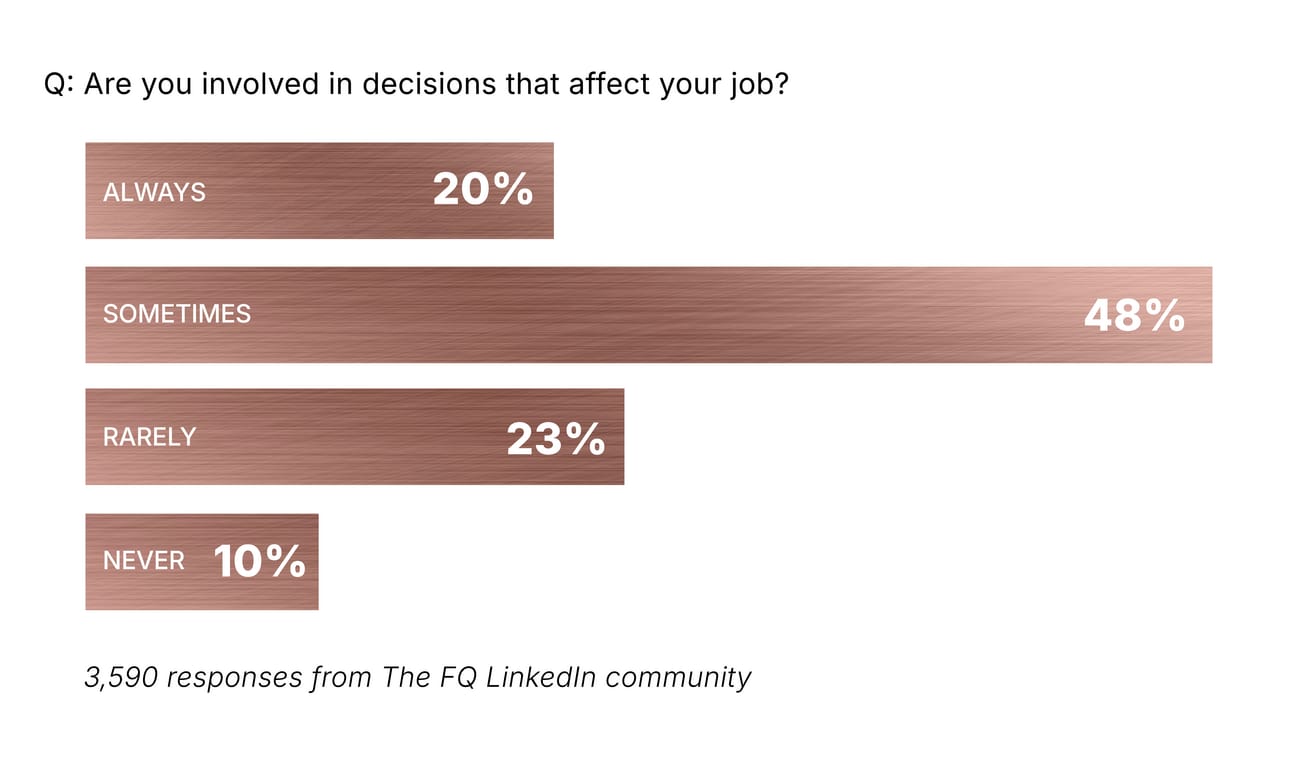Are retirement homes the new dorm room?
Intergenerational living with a host of benefits

WHAT’S ON DECK
Tell Me More: The Dutch nursing home with a beautiful cure for loneliness
Troublemaker Spotlight: Sheryl Palmer, Chairman and Chief Executive Officer, Taylor Morrison
Dear FQ: How can I be the go-to person for my boss?
Poll the Pack: Why employee voices should contribute to company decisions
TELL ME MORE
A Dutch nursing home has found a brilliant, mutually beneficial model: Free housing for college students in exchange for companionship

At Humanitas Retirement Village in the Netherlands, students live rent-free with one condition: Spend at least 30 hours a month connecting with residents through conversation, shared meals, and simply showing up. This unique living arrangement addresses two long-standing challenges: Students grappling with skyrocketing housing costs, and elderly residents facing increasing isolation. By bringing generations together under one roof, it eases financial strain, combats loneliness, boosts mental well-being, breaks down age-related stereotypes, and fosters a deeper sense of purpose for everyone.
Intergenerational relationships empower us to break free from age barriers, preconceived notions, and societal expectations—in life and at work. They provide a platform for wisdom to be shared, stories to be exchanged, and perspectives to be broadened.
This innovative living arrangement has caught on in other countries with similar models in Canada, Belgium, and other European countries. For college students, the benefits are lifelong, in both their personal and professional lives. Intergenerational friendships can reduce age-related difficulties at work and increase productive collaboration between colleagues.
"Intergenerational friendships require us to let go of biases about generations and approach the other person with curiosity. You realize there are all different types of intelligence, insight, and awareness that are fascinating and rich because the person came of age in another era,” says Ronald Siegel, an assistant professor of psychology at Harvard Medical School.
Marc Schulz, a professor of psychology at Bryn Mawr College and co-author of The Good Life, who has studied the correlation between personal relationships and happiness, shared that intergenerational friendship “enriches us and gives us a sense of connection that is life-affirming and energizing.” Younger friends often look to older ones for guidance—but the exchange goes both ways.
These connections challenge our assumptions about age and prove that meaningful relationships transcend generational divides. Elderly residents report improved well-being and renewed sense of purpose, while students gain wisdom and skills that go far beyond textbooks.
Bottom line: The benefits of intergenerational relationships extend beyond personal growth. They play a vital role in building stronger communities, where compassion, support, and empathy become the driving forces. By fostering understanding between generations, we lay the foundation for a more inclusive and cohesive society where everyone has a place and a voice.
TROUBLEMAKER SPOTLIGHT
Sheryl Palmer, Chairman and Chief Executive Officer, Taylor Morrison

What happens when you tell a room full of home builders to "love the customer?" They think you've completely lost your mind. But as one of the most powerful women in a male-dominated industry, Sheryl Palmer, Chairman and CEO of Taylor Morrison, isn’t phased by being different.
Under Sheryl’s leadership, Taylor Morrison was named America's Most Trusted® Home Builder ten years in a row and it’s the “love” that helped the company get there. So, how did she go from a new hire at McDonald’s to Chairman, CEO, and Executive Committee Member of the Joint Center for Housing Studies (JCHS) Policy Advisory Board at Harvard University? Equal parts authenticity. Equal parts hard work.
FQ: What’s the worst career advice you’ve gotten?
Every time I've started a new job is when I've received the worst career advice. If you're taking over for someone who's been in the role, they already have relationships with people and have made up their minds about each person’s potential.
I think the worst advice is listening to people as they're exiting a role on people decisions. You need to go in there, do your own assessment, and make your own decisions.
What’s the best piece of non-obvious career advice you’ve gotten?
I grew up in a house where my mom had a very successful career, and I think back then, she felt that she had to be mean and tough to get the respect she deserved amongst her peers. Early on in my career, when I was interviewing for my first big job at McDonald's, my dad said, "I know you grew up seeing your mom act a certain way in business. You just need to be yourself.” He instilled in me that it's hard to be your best self when you're trying to show up as somebody else.
That was probably 40 years ago, and I still take it to heart every day.
What was a “heartbeat moment” for you in your career?
Taking Taylor Morrison public. I brought my parents when I rang the bell at the New York Stock Exchange, and just the pride of my parents watching still brings me to tears. My face hurt from smiling that day.
Getting to that point took years of hard work. There were a lot of naysayers. And I understand it—when you run a public company, it's like a treadmill. You run 10 minutes for this, and then you run 10 minutes for that, and it's hard to get any downtime to catch your breath. As far as what was right for the company and business, this was the right decision. And we haven't looked back.
Who would you love to give flowers to from your career that influenced your journey?
Ray Kroc, the founder of McDonald's, taught me the value of preparedness. Early in my career at McDonald’s, during a regional day of presentations, Ray wheeled in on his little scooter into the back of the room right before I did my presentation.
Keep in mind, this is in the day of overheads—we didn't have PowerPoint back then. He couldn't see the screen and he started yelling at me from the back of the room: "I can't see it." So I'm trying to move it and make it bigger, but he keeps saying, "I still can't see it." I try to move the table, and eventually he says, "I don't know these things, and nobody can read them."
Someone finally said, "Just turn off the overhead." And so, for my first big presentation ever for Ray Kroc, I had to give it by memory.
To this day, my team will tell you about the level of preparedness we go through in case there's a technology glitch. That has stayed with me throughout my career.
Where have you caused trouble?
In 2019, I was traveling to all of our markets across the country for our Town Hall. I was focused on the impact our industry could make by transforming the customer experience. I coined the phrase, “Love the Customer”.
Talking about love in the homebuilding industry was unconventional, to say the least. I showed videos on love, from football coaches talking about love in the huddle to “How many of you love bacon?” and everything in between. It wasn’t about romance—it was about human connection. I remember the builders in the room looking at me like I’d lost my mind.
Fast forward to today, and we do a huddle every day and send out “Love the Customer” stories from around the country. I have thousands of huddle stories of our employees wowing customers. “Love the Customer” is now our differentiator.
Want to nominate a “Troublemaker” you admire? You can do so here.
DEAR FQ
Your burning career questions answered

Talia Bender Small of The Female Quotient weighs in:
The good news is that this often happens when someone shows ambition, drive, and initiative. Here’s advice on how to position yourself as the person ready for new and bigger responsibilities:
Make it clear to your manager that you're eager to take on new opportunities. Raise your hand. Again and again. Don't wait for them to ask. Tell them directly that you're looking for more experience and to contribute more to the team's success. Stay on top of and ahead of the work, stay in the loop, and keep current.
Be the person who says "yes" with genuine excitement, especially in early to mid stages of your career. Show that you're open to anything, whether it's a last-minute project, a challenging assignment, or something completely outside your comfort zone.
Early on in my career, one thing that accelerated my growth was learning to anticipate what my leader may need before she asked. I paid close attention to where she was going, who she was meeting with, and what conversations were coming up, and I started offering ideas and solutions ahead of time. It’s about being resourceful, thinking strategically, and showing up with value. The key is to be proactive. Don't wait for opportunities to come to you, create them.
P.S. Got a burning career question? Serve it up here to Dear FQ to score advice from a powerhouse leader in our network.
POLL THE PACK
Inclusion starts with involvement: Empowering employees through shared decision-making
Nearly one-third of employees are rarely or never brought into the conversations that affect their responsibilities, performance, and ultimately, their careers.
This points to top-down structures where decision-making remains concentrated at leadership levels. The result? A majority of employees feel sidelined from choices that shape their daily work. Feeling excluded from key decisions is one of the fastest routes to disengagement and turnover. When employees can't see how their voice influences outcomes, they're more likely to mentally check out.
Inclusion means creating environments where everyone, regardless of title, is invited to share ideas and shape the direction of their work. Doing so fosters harmony, a positive office culture, and reduces conflict.
If you’re being left out of key decisions, don’t stay silent. Advocate for your seat at the table. The strongest decisions aren’t made by the loudest voices or highest titles, they’re made when all perspectives are not only invited, but truly heard.
Remember, when different generations come together, magic happens!
Xo,
The FQ
Don’t forget to let us know what you think of The FQ Newsletter here.
REFER A FRIEND
Invite your network. Unlock FQ rewards.
We’re committed to making sure everyone has the opportunity to succeed in the workplace. Invite your friends to subscribe to The FQ Newsletter—because when more of us have access to insights and resources, we all advance together. Plus, the more you refer, the more rewards you unlock!
How It Works
Every subscriber receives a unique referral link.
Share it via email, LinkedIn, social media, or text.
Unlock rewards as your friends subscribe.
10 Referrals – 🫘 Coffee on us—because great conversations start over coffee
25 Referrals – ☕ A mug from The Female Quotient’s merch collection
50 Referrals – 👕 A sweatshirt from The Female Quotient’s merch collection
100 Referrals – 👥 A one-on-one coaching session with Shelley Zalis, CEO of The Female Quotient
500 Referrals – ✈️ A trip to join us at a FQ Lounge™ event

You currently have 0 referrals, only 10 away from receiving Coffee On Us.
Or copy and paste your unique referral link to share: https://newsletter.thefemalequotient.com/subscribe?ref=PLACEHOLDER
